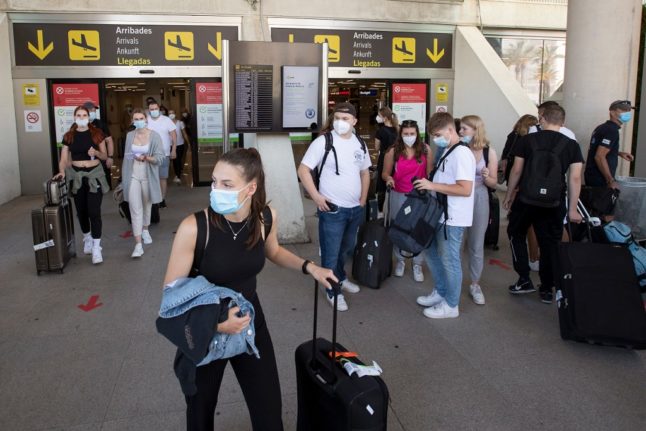Until now travellers from outside the bloc — including Spain’s main tourism market Britain — could only enter with proof of vaccination or recovery from Covid-19.
But as of Saturday visitors from outside of the EU will also be allowed to enter Spain with a negative Covid test result, the transport ministry said in a statement.
PCR tests must be carried out in the 72 hours prior to departure to Spain or an antigen test 24 hours prior to departure.
Tourism Minister Maria Reyes Maroto said the “new phase of the pandemic” meant the country was able to relax the rules by equating non-EU travellers with those of the bloc.
“This is excellent news, much awaited by the tourism sector, which will make it easier for tourists outside of Europe to visit us during the high season,” she added in the statement.
Children under the age of 12 are exempt from submitting any type of certificate.
With sunny beaches and a rich architectural heritage, Spain was the world’s second most visited country before the pandemic, with 83.5 million foreign visitors in 2019.
But international travel restrictions related to the pandemic brought Spain’s tourism sector to its knees in 2020 as it welcomed just 19 million tourists.
The figure rose to 31.1 million in 2021, far below the government forecast of 45 million arrivals.
READ ALSO: Spain lifts Covid-19 checks at French border



 Please whitelist us to continue reading.
Please whitelist us to continue reading.
Member comments